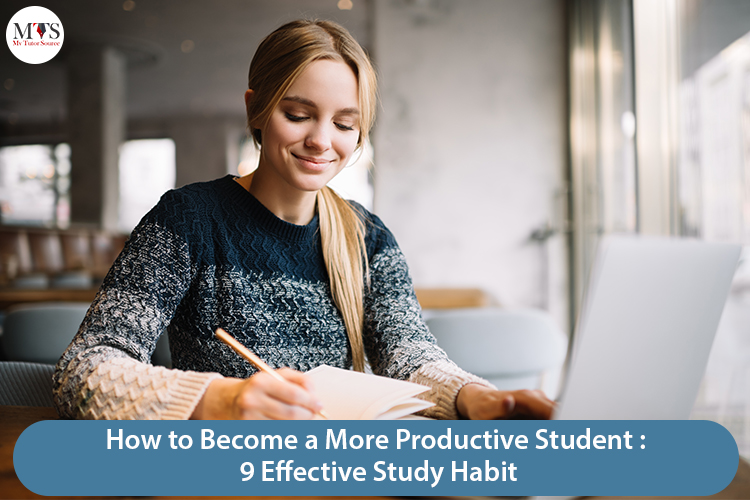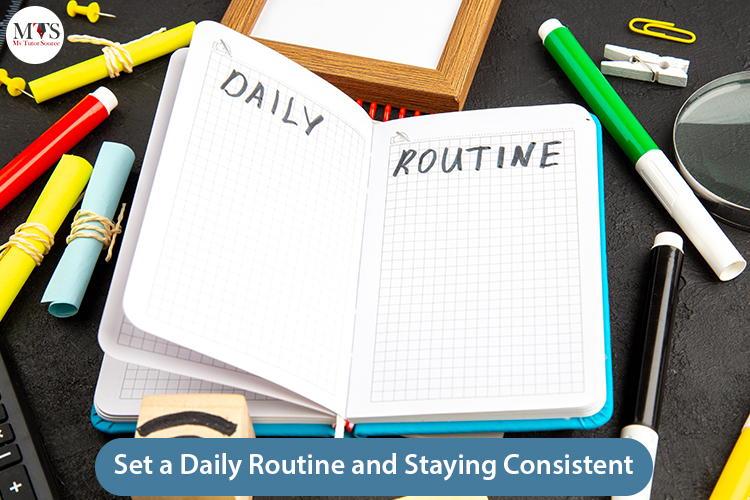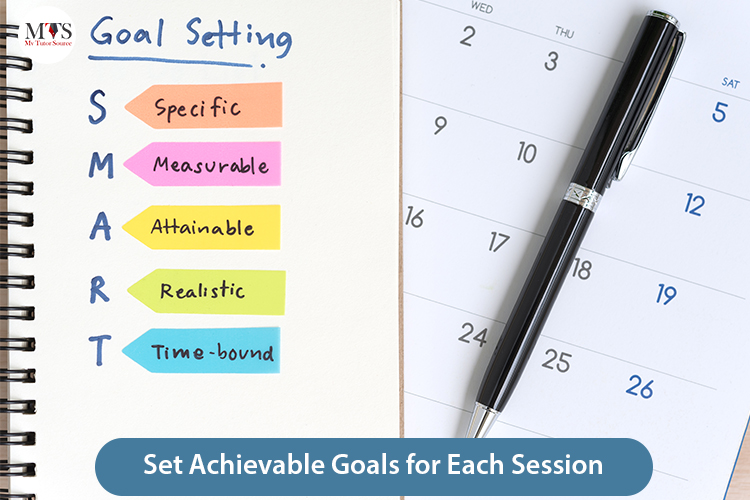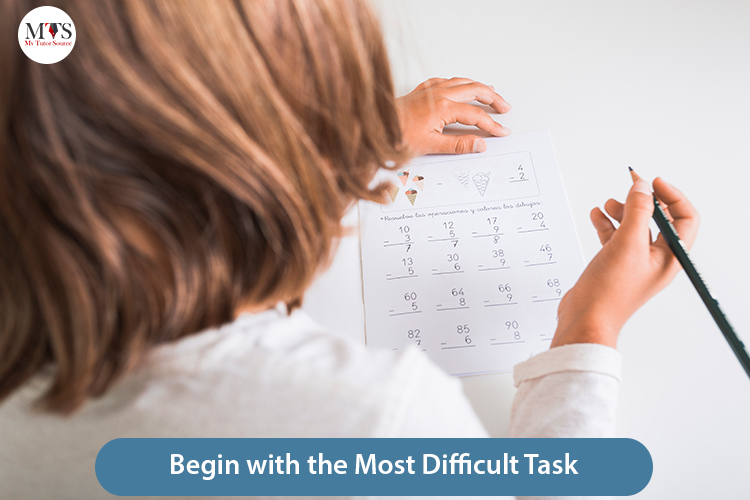

Many students make the mistake of thinking that they are not capable of being productive. To be a productive student, you need to have certain habits to help you succeed in your student life. In this blog post, we will discuss how to become a more productive student by adopting these nine effective study habits and influencing your success as a student.
So without any further ado, let’s get started by finding out the most effective study habits of students who succeed.
Some traits that differentiate successful students from the rest are how organized they are, how well they handle stress and anxiety, their positive attitude to learning new information or trying problem-solving tasks.However, if you are facing challenges while achieving higher grades, you can hire our skilled home tutors because they believe all students must be given a chance to succeed in their academic life, and they are specialized in helping you.
Now let’s see what the habits of a successful student are.
One way to become a successful student is by not cramming all your studying into one or two sessions. Instead, have shorter periods in which you are able to study more consistently. However, if you want to become successful, then there is no other option but consistency in your study habits; spacing things out will not yield the same results as intensely concentrating on an assignment before moving onto another topic that needs attention. It may be hard now when we’re accustomed to such long hours spent focusing on getting everything done right away in our traditional schooling system but learning how critical short breaks can actually help us succeed later.

A consistent study routine is essential, but when you’re trying to finish a big project quickly, it can be hard to keep up with your regular schedule.It’s okay if this happens now and then because life does not always go as planned; we have no control over how things will happen! But don’t let that stop you from getting back on track the moment something changes for better or worse. Even when unexpected events occur during exam season, there won’t be any surprises, like decreased productivity levels due to lack of consistency.

A recent study found that students who have specific goals during each study session are more successful in the long term.
Make sure to set a goal before you start studying so your studies will be as efficient and effective as possible! One way you can do this is by having an academic-based goal, such as memorizing 30 vocabulary words before your Spanish test so that you ace the section!

Procrastination is not a good idea. Procrastinating your studying will lead to ineffective studying and even errors that may ruin everything you are trying to accomplish in the assignment. If you procrastinate, it’s much easier for other things such as lack of interest or difficulty with the subject to sneak up on us because we have put off our study session so long already. Procrastinating also causes many people who try this strategy to end up forgetting what they were doing altogether by putting their work-in-progress aside when something else comes along that takes priority over what was left undone previously, like an unforeseen emergency at home, among others!

As you’re starting your work, it’s best, to begin with the most difficult subject first. This will give you a better chance at success and make finishing less of an effort in comparison. Believe it or not, beginning with the most challenging assignments might be more beneficial for studying than many students realize! Ease into your assignment; start with the most difficult subject first. You’ll thank yourself later.

Related Read:
So, before you can review your notes for the day’s lecture, it is essential to make sure that you have taken suitable classes. This means being prepared by studying and taking in what the professor has taught during their lectures. Before each study session, go back over all of your class notes from previous days so that when you begin a new assignment or after reviewing one exercise on an old essay question, research paper topic, or project. Those materials will come more manageable because they are fresh in mind, which makes learning more effective!

You’re not the only one who gets distracted. The TV, family, and even a little too much silence can interrupt your studying process — which won’t lead to good grades or success in school! Before you start working on homework, find an area where there are no distractions so that you’ll stay focused while completing tasks. Some people will study better with background noise while others need things silent around them for concentration; it all depends on what kind of environment works best for you as well as whether or not other students are at the desk next to yours (and their volume level).

Working in groups for study purposes has many benefits. You can get help from others when you’re struggling, complete assignments more quickly, and teach other people, which can benefit your group members and yourself as well because it is easier to learn something by teaching than just reading about it. However, if these groups are not structured or everyone comes unprepared, then they will become ineffective.

Successful students spend their weekends reviewing what they learned during the week. This way, when Monday morning rolls around and new concepts that build upon previous coursework are introduced, you’ll be well-prepared to continue learning. We know this might sound like an old technique to you, but if you’ll just take a few minutes to do it every Friday night before bed and sometime Sunday morning as well, we’re confident our plan won’t fail.
Now let’s find out what things to avoid while studying.

Most students want to do everything they can to get a good grade. This leads them to study more than necessary and start doing counterproductive things for their studying habits. Some studies show that students’ most common mistakes while trying to learn new information are not sleeping enough, having too much caffeine. Even having a lot of sugar intake, staying up late because that leads to sleep deprivation, and not having a good student-life balance. It would help if you avoided all such things to develop good study habits.

Studying is tough and can be time-consuming, but finding out what works best for you is worth the effort. Studying takes patience and determination, which are two qualities everyone needs in their life if they want to succeed at anything worthwhile. Studying effectively not only ensures higher grades on tests but also fosters better study habits. Hence, students stay motivated throughout all levels of education- from elementary school through graduate programs like medical or law schools.
Related Read: https://www.mytutorsource.hk/blog/best-ways-to-motivate-your-teen-to-learn/